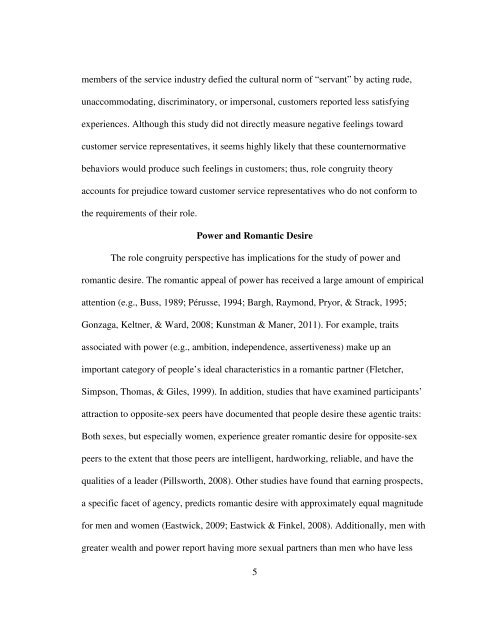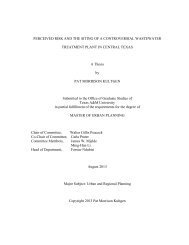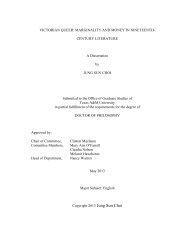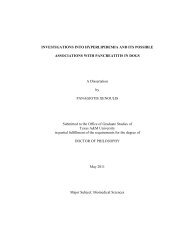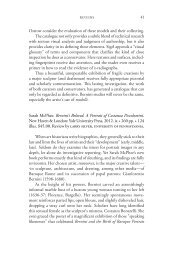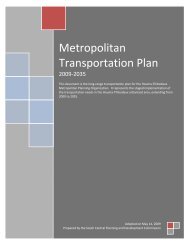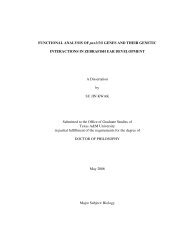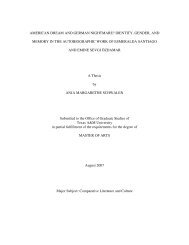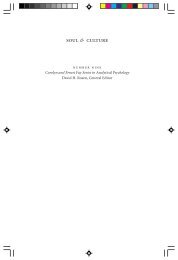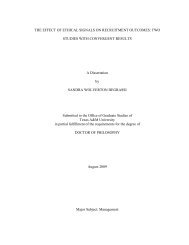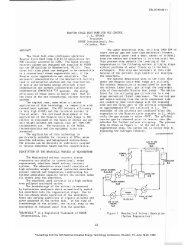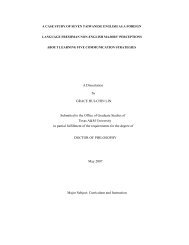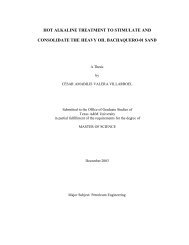A ROLE CONGRUITY ACCOUNT OF ROMANTIC ... - Repository
A ROLE CONGRUITY ACCOUNT OF ROMANTIC ... - Repository
A ROLE CONGRUITY ACCOUNT OF ROMANTIC ... - Repository
You also want an ePaper? Increase the reach of your titles
YUMPU automatically turns print PDFs into web optimized ePapers that Google loves.
members of the service industry defied the cultural norm of “servant” by acting rude,<br />
unaccommodating, discriminatory, or impersonal, customers reported less satisfying<br />
experiences. Although this study did not directly measure negative feelings toward<br />
customer service representatives, it seems highly likely that these counternormative<br />
behaviors would produce such feelings in customers; thus, role congruity theory<br />
accounts for prejudice toward customer service representatives who do not conform to<br />
the requirements of their role.<br />
Power and Romantic Desire<br />
The role congruity perspective has implications for the study of power and<br />
romantic desire. The romantic appeal of power has received a large amount of empirical<br />
attention (e.g., Buss, 1989; Pérusse, 1994; Bargh, Raymond, Pryor, & Strack, 1995;<br />
Gonzaga, Keltner, & Ward, 2008; Kunstman & Maner, 2011). For example, traits<br />
associated with power (e.g., ambition, independence, assertiveness) make up an<br />
important category of people’s ideal characteristics in a romantic partner (Fletcher,<br />
Simpson, Thomas, & Giles, 1999). In addition, studies that have examined participants’<br />
attraction to opposite-sex peers have documented that people desire these agentic traits:<br />
Both sexes, but especially women, experience greater romantic desire for opposite-sex<br />
peers to the extent that those peers are intelligent, hardworking, reliable, and have the<br />
qualities of a leader (Pillsworth, 2008). Other studies have found that earning prospects,<br />
a specific facet of agency, predicts romantic desire with approximately equal magnitude<br />
for men and women (Eastwick, 2009; Eastwick & Finkel, 2008). Additionally, men with<br />
greater wealth and power report having more sexual partners than men who have less<br />
5


